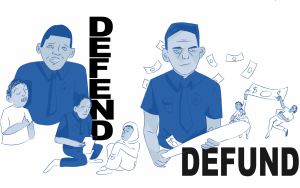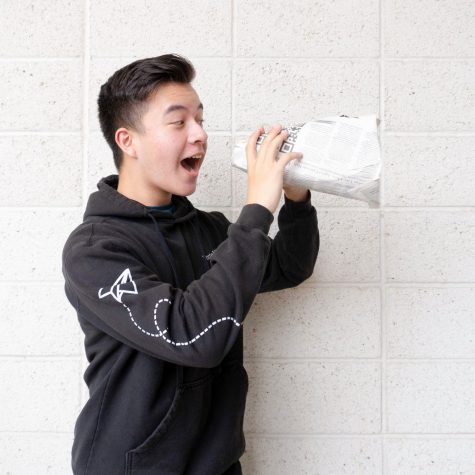Defend the Police
September 22, 2020
Calls to defund the police have taken root in American legislature as a proactive means to combat systemic racism and police brutality toward black Americans. However, amid a surge in violent crime and looting across the United States, defunding law enforcement is neither practical nor timely and will ultimately harm American communities.
To defend the police is not to deny or ignore the existence of police brutality, especially toward minority groups. Rather, it is to ensure that our law enforcement has the tools necessary to protect our communities, including marginalized communities.
“[My city] wants to cut 10 million dollars from the budget starting October 1,” Orange County police officer Rob C. [name altered for anonymity] said. “The tools that we need to be able to successfully complete our job, I don’t think we have that anymore. The necessary resources. It’s going to put public safety at risk. It’s going to cause response times to increase. You’re not going to have anywhere near as many officers on the ground handling routine calls.”
Between late May and early August, New York City alone recorded a 140% increase in shootings compared to the same period last year, according to the New York Times.
In Minneapolis and St. Paul, approximately 1,500 businesses “were damaged by vandalism, fire and looting” between May and August, totaling more than $500 million in property damages, according to the StarTribune.
As the COVID-19 pandemic continues to deepen economic disparities, marginalized groups will be among those affected most by the ramifications of a defunded police force.
“Wealthy neighborhoods will hire private security as they are already doing, and poorer neighborhoods will have to fend for themselves even more than they already have to,” Seattle University criminal justice professor Jacqueline Helfgott wrote in a The Seattle Times article. “Delays in police response and lack of police capacity will increase fear of crime, render victims of crime helpless and wreak havoc on communities, especially communities of color, even more so than is already the case.”
Seattle’s first black police chief, Carmen Best, announced her resignation on Aug. 11, citing a “lack of respect” for law enforcement officials, according to The Seattle Times. The move came hours after the Seattle city council’s decision to cut $3 million from the police budget on Aug. 10, threatening layoffs for up to 100 police officers.
“We have 800,000 calls for service every year,” Best said on NPR. “If you just lop off, even 100 officers, that’s going to be highly detrimental to a department that wasn’t staffed enough to deal with the calls we did have. And who is going to answer?”
Mass police resignations correlated with a 37% increase in homicide rates, a 35% increase in aggravated assaults and a 27% increase in robberies in June, as found in a study conducted by the Council of Criminal Justice analyzing the impact of the COVID-19 pandemic and social unrest in 27 American cities.
In a time marked by desperation, economic turmoil and an upsurge in violent crime, the need for a capable, unobstructed police force has not been clearer.
“We shouldn’t defund the police, as law enforcement is essential for the safety of our community,” junior Jax Szerenyi said. “Officers’ jobs are already hard as is, and with the idea of ACAB [All Cops Are Bastards], many officers are leaving their jobs, contributing to higher crime rates.”




